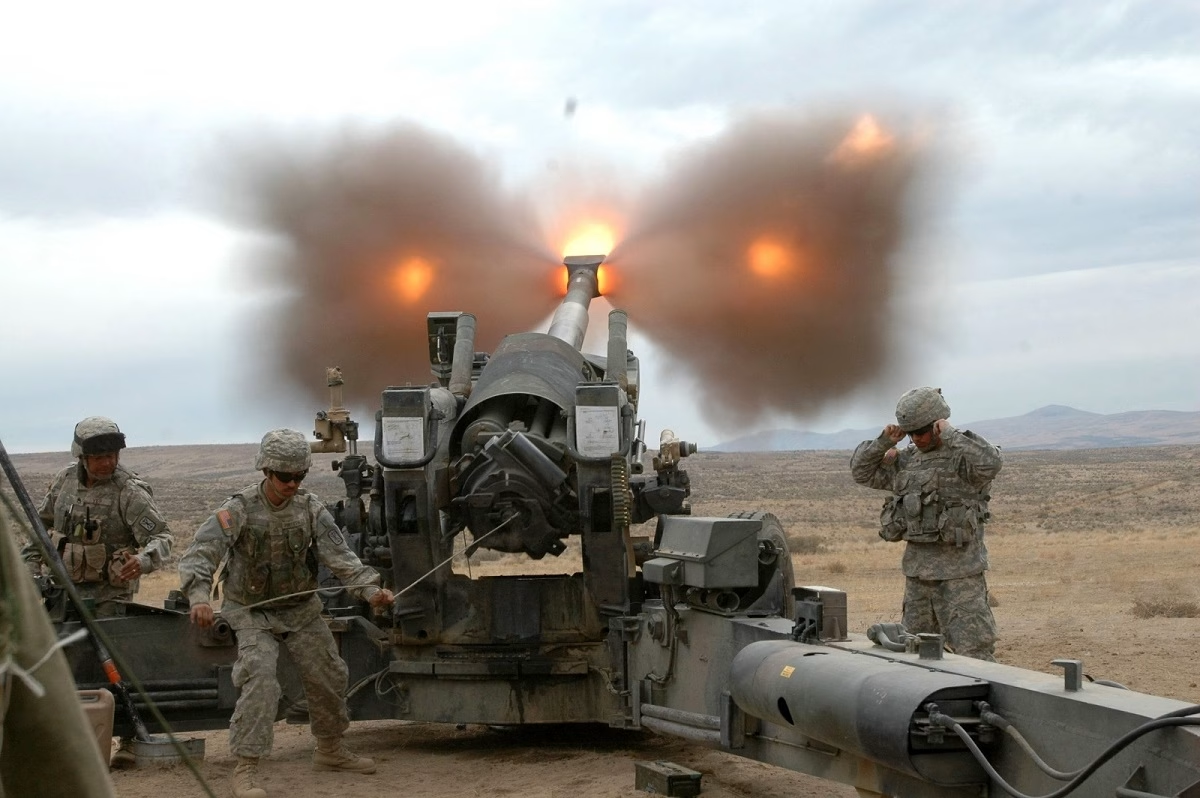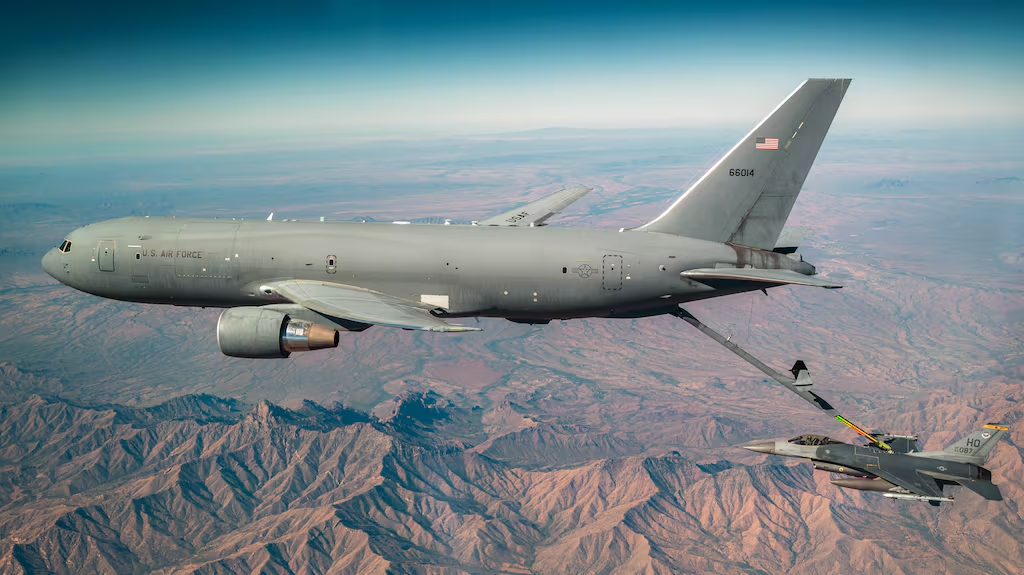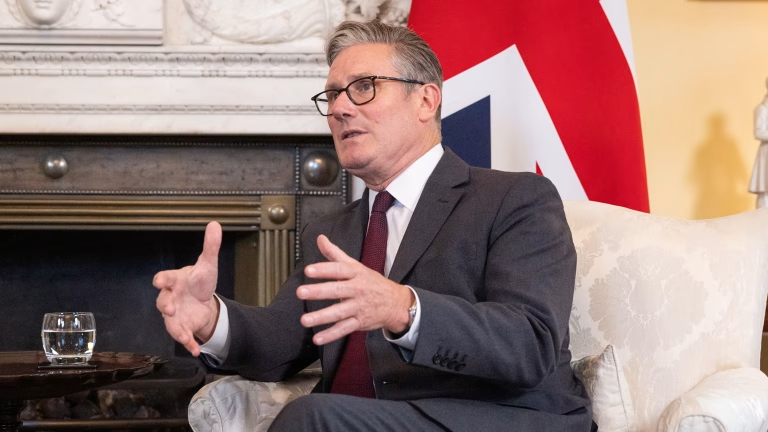
Trump’s team is struggling to resolve the problems facing the American military-industrial complex and the army
The crisis in the American military-industrial complex has reached a critical point: overspending on weapons is estimated in the billions, production capacities are overloaded, and Trump’s trade wars are depriving the Pentagon of access to Chinese rare earth metals. Even a record number of recruits cannot save the US army from being reduced to its smallest size since 1940.
Trump-style disarmament
Donald Trump inherited an American army and military-industrial complex in crisis, requiring profound reforms in management, finance, the range of weapons produced, and even ideology. The need for change was confirmed by regular difficulties and failures. Often, the latest American ‘superweapon’ faced financial and technical difficulties. Earlier, Northrop Grumman’s B-21 Raider bomber project faced colossal cost overruns — the cost of a single aircraft approached $1 billion with only three units assembled and constant delays.
The corporation’s losses are estimated in the billions, as are those of Boeing, which lost $10 billion on the KC-46 Pegasus and Air Force One programmes, and the upcoming production of F-47 fighters at $300 million apiece will only exacerbate the situation. Trump’s trade wars threaten a shortage of rare earth metals from China, forcing the Pentagon to extract germanium even from old night vision goggles. The purge at the Pentagon and the conflict with the EU are putting the European market at risk. These systemic problems — from production disruptions to raw material shortages — will seriously limit the United States’ ability to compete with China in the arms race, which Washington has declared a strategic priority.

American arms exports, which could greatly help the stagnating defence industry giants, are not particularly successful. Military experts in the US were rather sceptical about the record $140 billion deal with Saudi Arabia. The White House called it the largest in history, but many sceptics immediately recalled Trump’s first term deal with Riyadh for $100 billion. At the time, it was also presented as ‘fateful’, and Saudi Arabia began to receive Patriot systems, missiles and aerial bombs. But to date, total arms sales have amounted to only $30 billion and even the old contracts from eight years ago have only been fulfilled by a third.
At the same time, Democrats in Congress are blocking cooperation with Riyadh. Saudi Arabia has long understood that it needs to promise Trump as much as possible, but that it is not necessary to fulfil all contracts in the future. Moreover, the American military-industrial complex will not be able to physically produce so many weapons — for example, only 300 Patriot missiles are produced per year, and contracts with the EU, Asia and Israel are already overloading production capacity. Israeli lobbyists are protesting against the supply of F-35s to the Arabs, which will delay the approval of deals. Trump is trying to temporarily distract Riyadh from Beijing, although cooperation may resume. Most contracts will remain on paper, including trillions in investments from Gulf monarchies, but the administration needs at least a propaganda effect.
An army without soldiers
It was precisely for these reasons that the White House pompously announced the resolution of the crisis of new recruits in the US armed forces, because during the Biden era, the Pentagon was unable to meet its annual recruitment targets. At one point, the shortage of people willing to serve reached 20-25% in certain branches of the US military. The liberalisation of the army and the racial and gender agenda reduced its combat effectiveness, although generals blamed unpatriotic zoomers for this, when the real reason was salaries that were not keeping pace with inflation. With the arrival of Trump, recruitment briefly increased — the Pentagon even fulfilled its plan four months ahead of schedule, despite the chaos in the department, where purges, contract terminations and anti-corruption investigations are underway. However, even the record 15-year increase in recruits will not stop the reduction of the army, which has reached its lowest level since 1940. Trump’s plans to cut 90,000 soldiers will primarily affect Europe, where the American presence will be curtailed along with security guarantees — a move that brings both advantages and risks to Washington.

It is precisely in order to demonstrate to its allies that the US no longer wants to bear the sole cost of security that Trump’s team is once again questioning the future of AUKUS. Elbridge Colby, Trump’s adviser and chief strategist at the Pentagon, began auditing the joint pact with the UK and Australia at the beginning of the summer. The Republican administration’s relations with Labour in London and Canberra remain very difficult. Colby is considered a realist who is concerned about the limited military resources of the United States in the current circumstances, which is why he is actively lobbying for an end to support for Ukraine and a reduction in the military presence in the Middle East, and it is thanks to his efforts that this is beginning to happen right now.
In the Asian region, the Pentagon is demanding that US allies, including Japan, the Philippines, Taiwan and South Korea, increase military spending to 5% of GDP and take on more responsibility for their own security. In the context of AUKUS, Trump’s military team does not like the very fact that Virginia-class submarines are being transferred to Australia, because it currently takes the Pentagon nine years to build one submarine, although they were recently assembled in six. The situation is exacerbated by a shortage of rare earth metals, four tonnes of which are needed for a Virginia-class submarine. Now the White House is demanding that Australia pay more for the AUKUS and, ideally, that it look for new submarines to purchase outside the United States, including in the United Kingdom, which is also its ally. And in the event of a serious escalation in the Middle East or around Taiwan, the future of AUKUS can be forgotten, because the bloc will certainly not provide any assistance to the rebellious island, and all the risks will again fall on the United States, demonstrating the inconsistency of such amorphous ‘military blocs’.
The Pentagon will soon release a report on the global presence of the United States, in which Colby will recommend refocusing on supporting American allies in Asia, so that Ukrainian tranches will ultimately be safely sent to Taiwan. But this is only a detector, not a way out of a vicious circle, and the problems of the American military-industrial complex and the army are being solved with great difficulty by Trump’s team.

